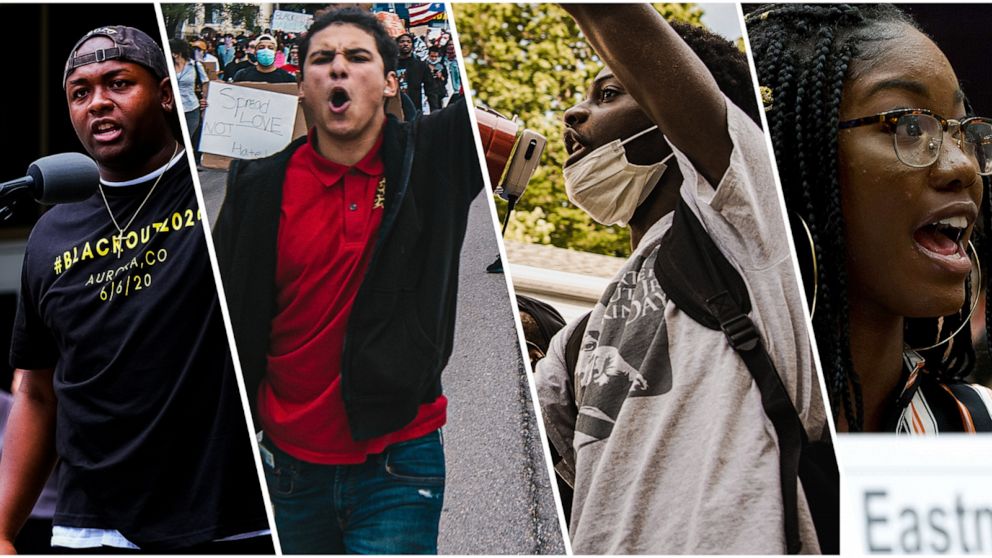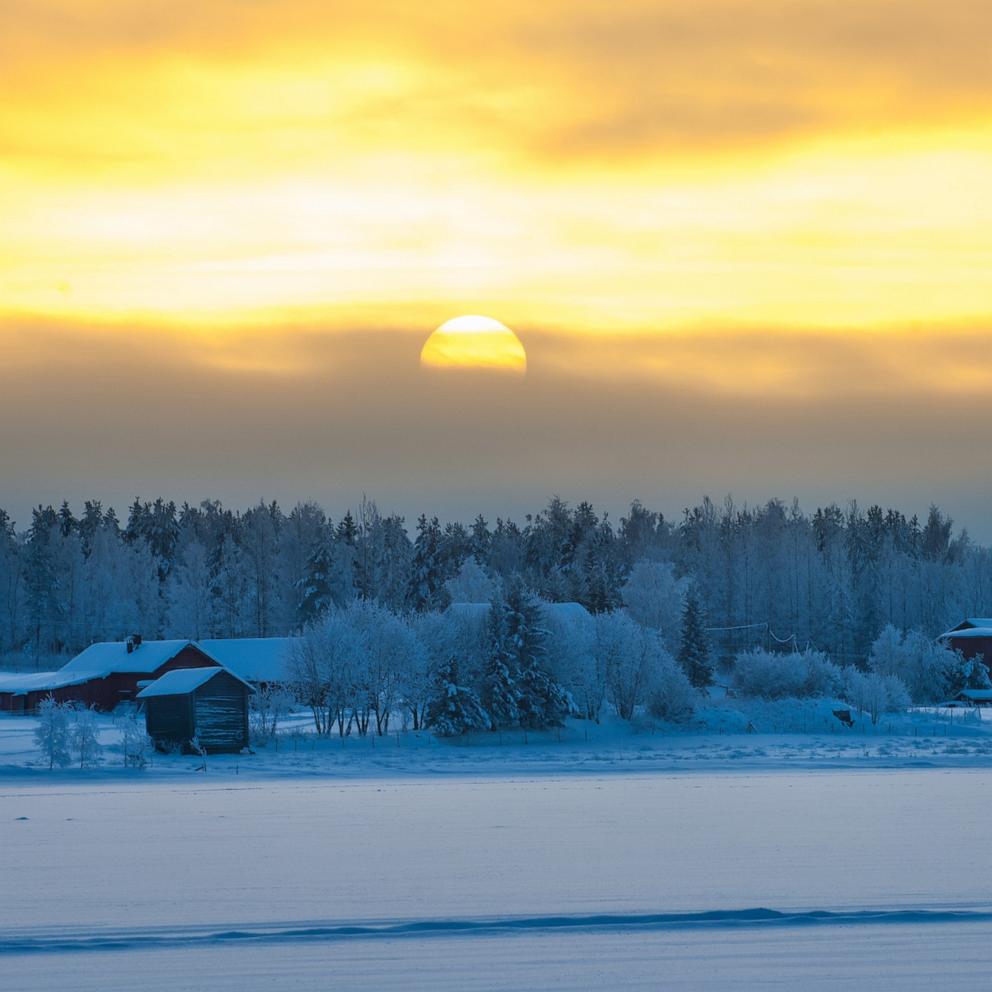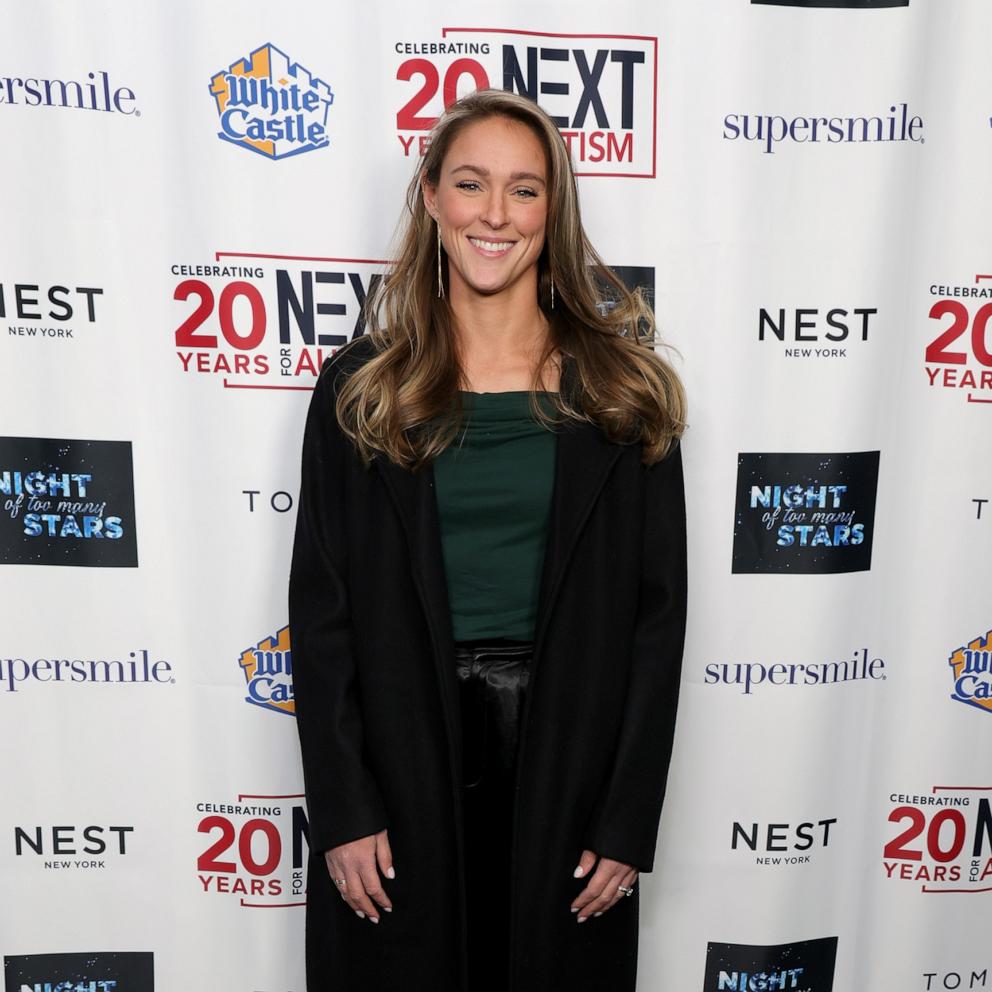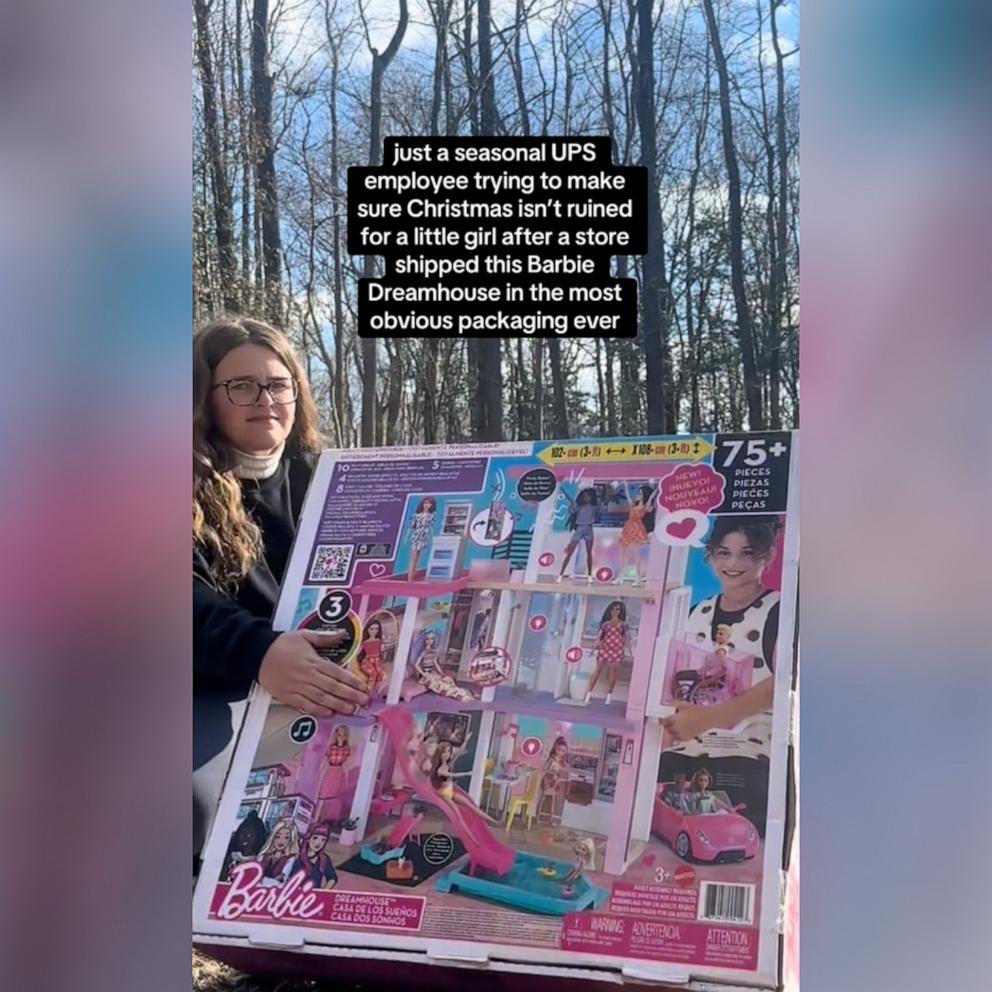Meet 4 young activists fighting racial injustice across the nation
In the wake of George Floyd's death, many have taken to the streets to express their anger over systemic oppression and racial injustices towards black Americans. With people in all 50 states participating in demonstrations, young men and women are at the forefront calling for justice.
At the heart of the Black Lives Matter movement, a new generation of activists is demanding to be heard and using their voices to enact change.
Here are four young leaders actively driving change in the United States.
Stefan Perez, 16, Michigan
When Stefan Perez took a knee among hundreds of protesters in Detroit, it was clear to him that many individuals never got the chance to fulfill their dreams because their lives were prematurely taken from them.
The 16-year-old has always acknowledged racism and police brutality through his music, but in light of the recent nationwide protests, he took to the streets to express his outrage.
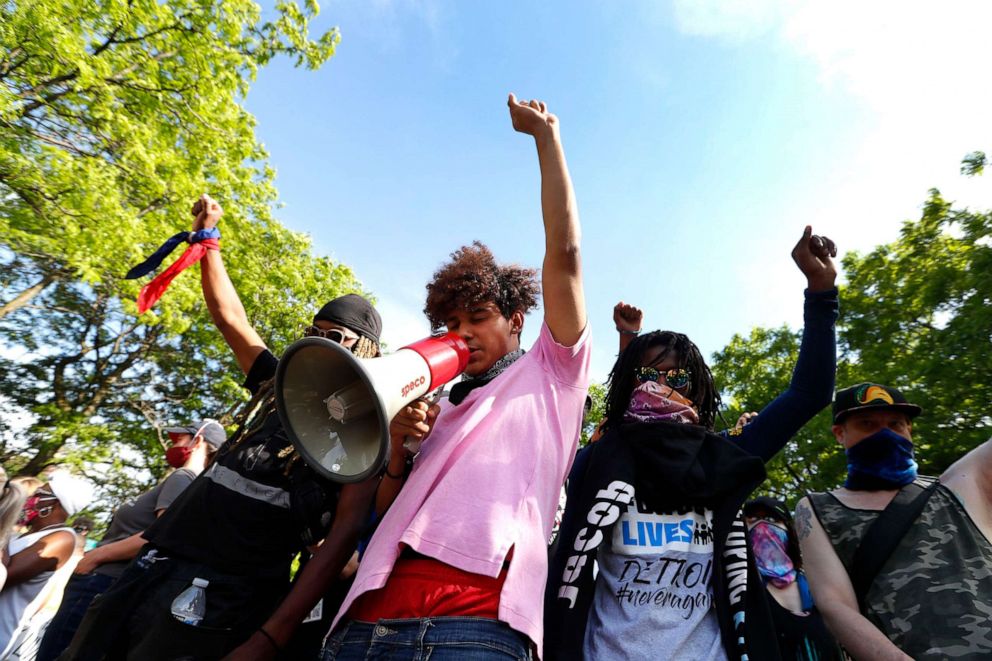
Perez left his home early in the morning on June 1 and started marching, meeting strangers along the way and encouraging them to march with him. The once-small crowd grew rapidly as he led hundreds of protesters over eight miles. He repeatedly chanted "no justice, no peace" over a megaphone to honor the African Americans who have died at the hands of police officers.
"We're all fighting for the same cause. We're trying to build towards a better future," Perez told "Good Morning America."
Perez managed the crowd and ensured that it remained peaceful throughout the day. At the end of the march, he urged protesters to abide by the city's 8 p.m. curfew and return home.
His leadership caught the attention of Detroit Mayor Mike Duggan, who was overcome with emotion when he called Perez to commend his work. On the phone, the mayor couldn't hold back his tears as he told Perez, "You are everything that is special about the city of Detroit."
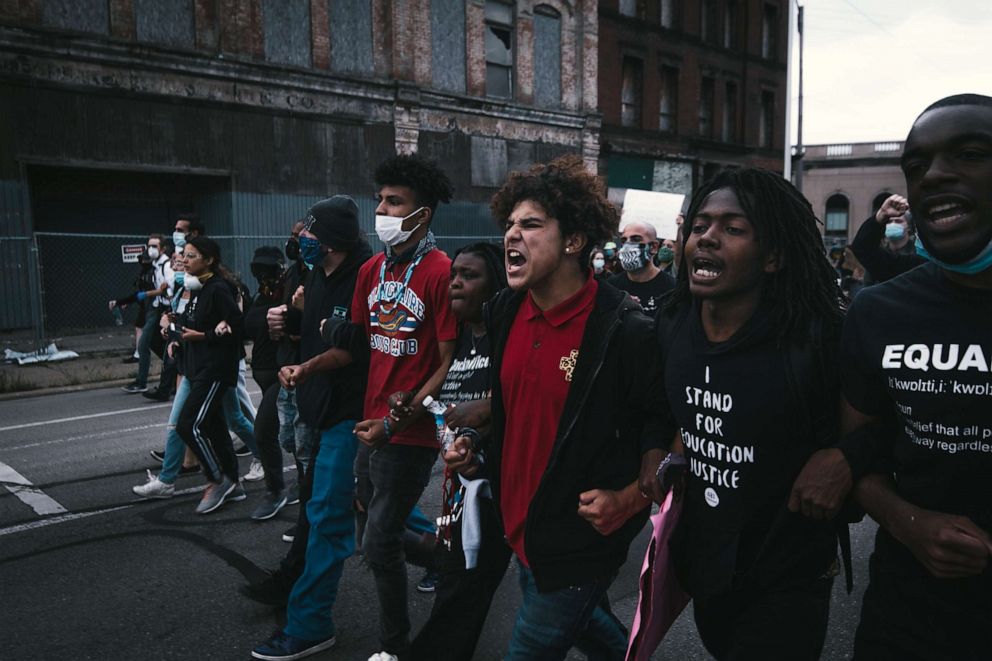
Perez, who once considered himself a statistic and never throughout he'd make it to see his 16th birthday, certainly never imagined one day he'd lead a crowd of hundreds. He says growing up in his southwest neighborhood of Detroit, many of his peers never made it out of their teenage years due to gun violence. Although this was his first protest, he quickly found himself back on the front lines soon after, leading several other demonstrations in his city.
He plans to continue marching throughout Detroit until his message gets across to lawmakers.
"This is a step towards progression and together we're going to make a change," Perez said.
Tay Anderson, 21, Colorado
If becoming Colorado's youngest elected African American official wasn't noteworthy enough, Tay Anderson has also emerged as the leader for several protests in Denver.
Anderson currently serves as the director for the Denver School Board and is no stranger to leading social justice initiatives. He ran on a platform that included eliminating the school-to-prison pipeline by replacing school resource officers with mental health specialists, restorative justice coordinators and additional nurses.
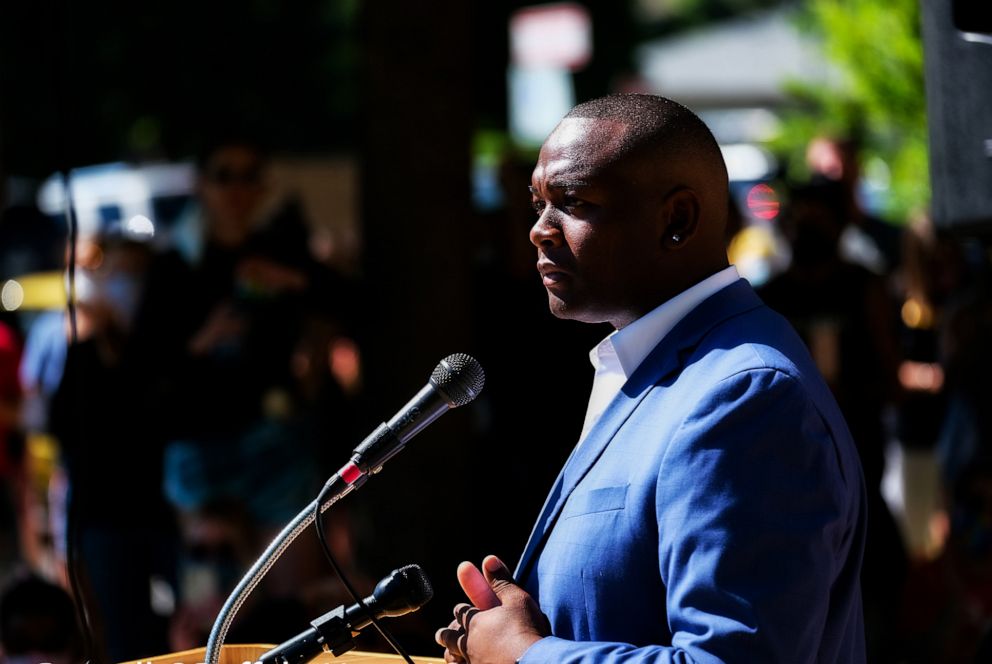
Since the death of Floyd, demonstrators have been protesting in downtown Denver. When armed police officers faced off with protesters on May 28 in an attempt to disperse a rush-hour crowd from being in the streets, Anderson naturally stepped up to take the leadership role in an attempt to keep protesters safe.
"I immediately left my town hall meeting and went downtown to make sure everyone was safe," he said. "I ended up negotiating a stand-down with the chief of police and they opened back up the streets for protesters."
Since then, he has taken on the responsibility of organizing a majority of Denver protests while making sure his citizens are kept safe. His newfound attention has led to several online threats, but Anderson hasn't let that silence his voice.
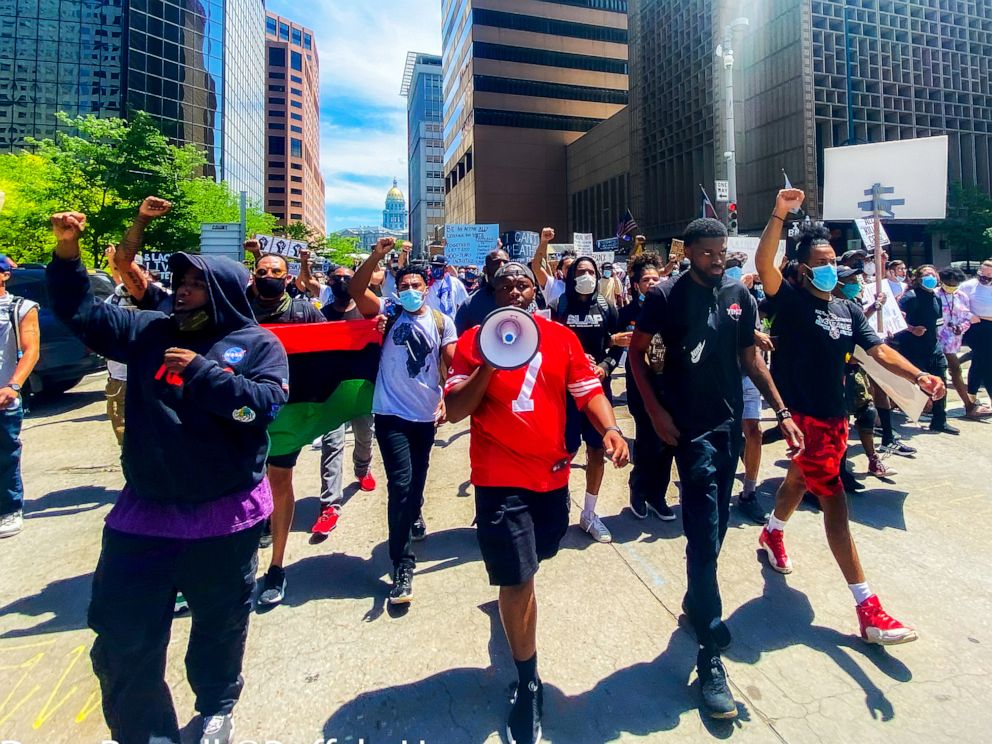
While Anderson continues to protest alongside thousands every day, he also wants to ensure no one contracts COVID-19. He recently received special acknowledgment from Colorado Gov. Jared Polis after encouraging all protesters to wear face masks and get tested. For those who don't have the proper protective gear, he helps to distribute masks in an attempt to prevent a surge in cases.
"People shouldn't have to risk their lives in order to say that black lives matter," he said. "If you're going to come out and protest, I want to make sure that everyone is safe."
Aalayah Eastmond, 19, Florida
Aalayah Eastmond's fight against violence first started in 2018 after she survived the massacre at her high school in Parkland, Florida.
In honor of the 17 students and educators who died at Stoneman Douglas High School, she became an advocate for gun violence in hopes of resolving the issue in America. Last year, she testified before a House Judiciary Committee hearing on gun violence prevention at Capitol Hill.
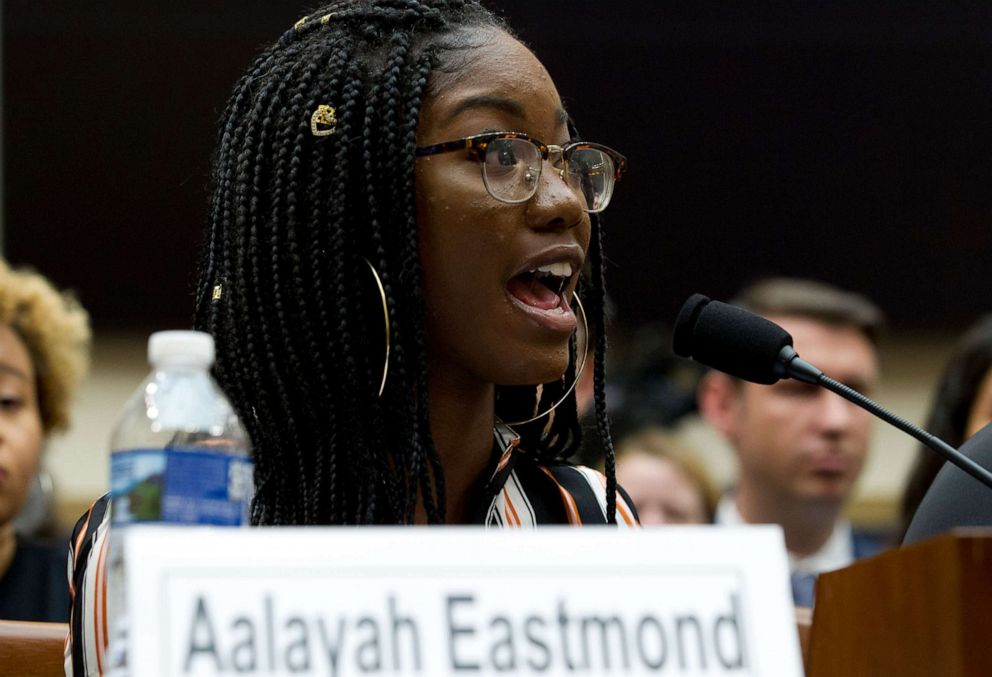
Now, currently residing in Washington, D.C., for college, she's focusing her attention on the Black Lives Matter movement and police violence. By speaking out against injustice, she hopes to invoke change.
"Unfortunately, black people are impacted the most by systematic issues compared to any other group of people," she said. "I felt like it was my duty as a young black woman to shift the conversation and speak out."
After noticing that many of the protests in Washington, D.C., lacked structure and organization, she decided to organize marches and lead protesters as they walked from the White House to the various federal buildings, calling for action.
Now a leader of the newly established social justice group Concerned Citizens, Eastmond and several other D.C.-based young adults came up with a list of 10 demands for local and national leaders. Included on this list are mandatory civilian review boards, commitment to ending brutal practices by police and empathy for the black community struggle.
"The marching and the chants are great, but we also get real change from demanding things to be done by the people we put in office," she said.
Eastmond remains hopeful for federal action but knows the change may not come easy.
"It's been two years since the Parkland shooting and we haven't really seen a substantial amount of change. This movement is probably not going to be at the snap of a finger either. We don't know how long it's going to take, but we're going to continue until we see change," she said.
Junior Dufort, 21, Connecticut
If you're wondering where Junior Dufort currently is, it's likely he's out protesting, making his voice heard all throughout the state of Connecticut.
Dufort has been calling for justice since May 30, five days after Floyd died while being arrested by Minneapolis police officers. Rain or shine, he travels throughout Connecticut demanding change. Although it may be exhausting at times, he does it in the name of the countless black men and women who no longer have a voice.
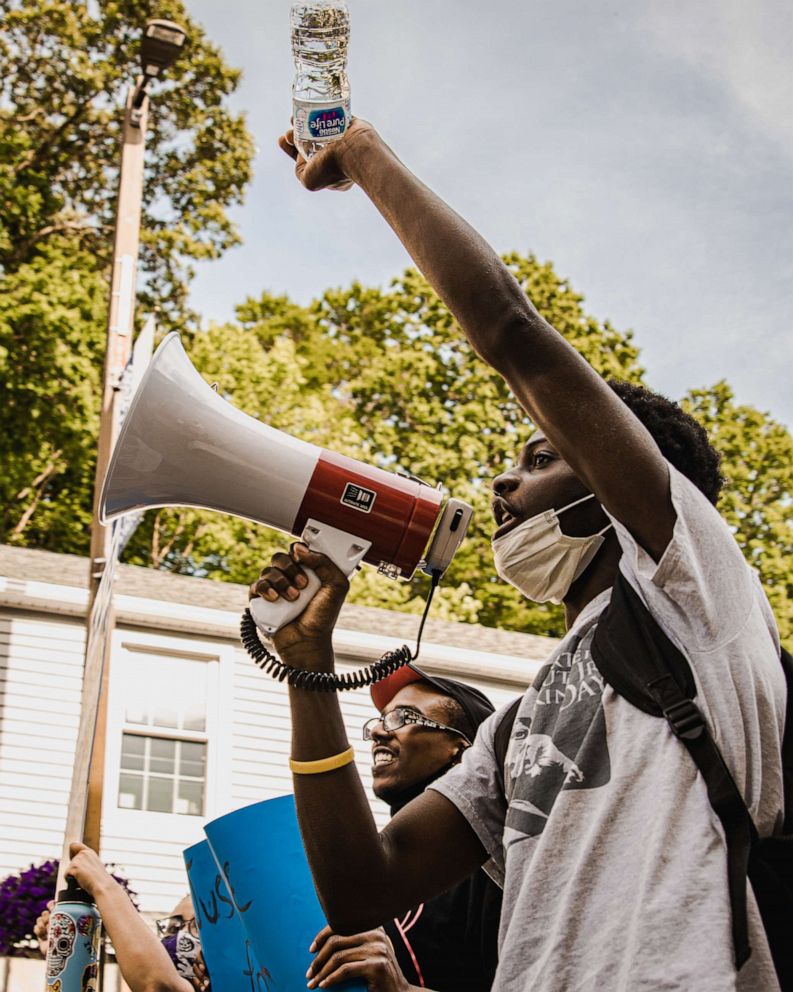
"When you look back at the civil rights movement, the changes did not come about easily. It took an enormous amount of protesting," he told "GMA." "If we want to make a change, we must continue to apply pressure."
With three younger siblings, Dufort wants to be a role model and instill in them the importance of always speaking up and making their voices heard.
"I don't want them to ever fear standing up for what's right even when others may be against them," he said.
Just recently, Dufort marched peacefully to the Norwich Police Department hand-in-hand with his younger brothers. He passionately laid out his concerns to the chief of police in front of hundreds of protesters.
"We need more," he said, as he addressed the commissioner while proudly wearing his Martin Luther King Jr. shirt.
"My last words to the chief was, 'You will continue to see my face until the change we demand has come,'" Dufort said.
As a 2020 criminal justice and political science graduate, he has made it a mission to help fix systemic issues often seen in marginalized communities. Most recently, he served as assistant campaign manager for a campaign run primarily on resolving social justice matters.
Dufort doesn't plan to stop protesting anytime soon but says he's more than optimistic for what's to come.
"I know change is going to come," he said. "We just have to keep the fire burning. These protests are only the beginning and we can't stop."
